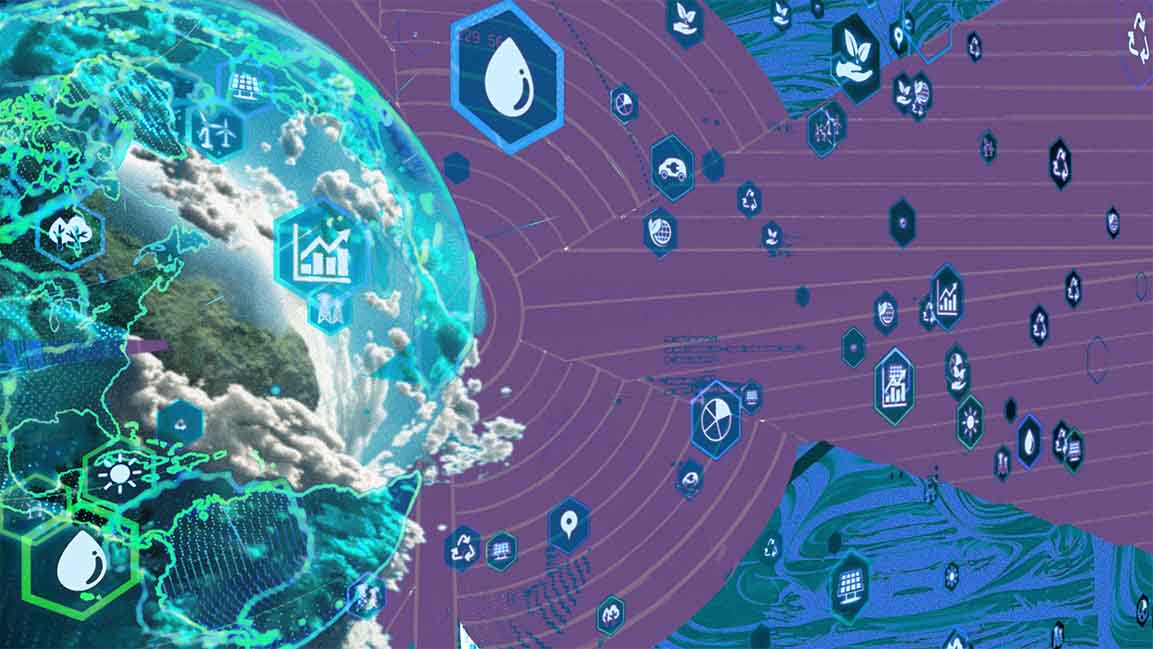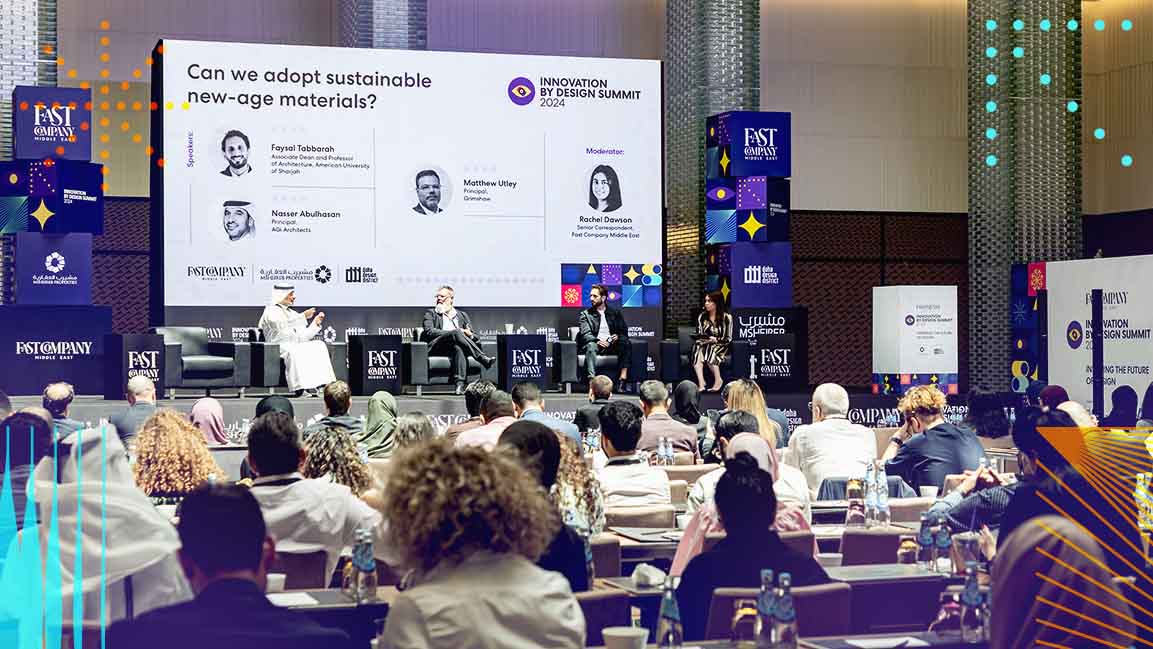- | 9:00 am
Climate tech innovation in MENA is changing—and so is the support ecosystem
Start-Up Nation Central is encouraging regional collaborations between startups focused on weather, security, and energy and climate.

It may not be great to be a bee right now—all that extreme weather, pollution, and loss of habitat to contend with—but at least the insects’ innate ability to work as a team makes their hives stronger and safer.
This is the underlying thinking behind the MENA Alliance for Climate innovation, launched by Israeli non-profit Start-Up Nation Central (SNC), to encourage regional collaborations between businesses focused on weather, security, energy, and climate.
As Aviva Steinberger, SNC’s innovation diplomacy director, says: “Climate doesn’t care about geographical boundaries or politics, and to effectively tackle climate change, we all need to work together.”
Fittingly, one of the first such collaborations to gather momentum is Beewise Technologies, a UAE-backed Israeli startup that uses AI and advanced robotics to save honeybees—and, ultimately, humankind from starvation.
“75% of all the fruit, vegetables, seeds, and nuts for human consumption are pollinated by bees,” explains Saar Safra, co-founder, and CEO of Beewise Technologies. The trouble is that around 40% of bee colonies are wiped out yearly.
To help tackle this, Beewise has reinvented the traditional beehive with its solar-powered BeeHome—a “smart hive” with integrated sensors and cameras. A robotic arm inside the hive controls temperature, humidity, and pests and can also detect when the bees have filled the frames with honey. The robot then harvests the honey inside the BeeHome, and when each hundred-gallon container is full, it sends an alert to the beekeepers to empty it.
The startup has raised around $120 million from investors, including New York’s Insight Partners and Sanad Abu Dhabi, a subsidiary of Mubadala Investment Company.
“Since Covid, when many ports were not in operation, we have seen more and more nations heavily investing in shoring up their food supply chain,” says Safra. “While we have seen a growing interest in our solution globally, there has been even more demand in the MENA region.”
FILLING A VACUUM
This was more than a pure business play for Sanad—which typically bankrolls global aerospace companies rather than winged insects. “The UAE is currently the only country in the world, apart from the US, our main market, which uses our technology,” says Safra. “The UAE has specific requirements regarding pollination and honey production, and our BeeHome is a perfect fit for its climate profile and challenging agricultural environment.”
According to Safra, “the catalyst allowing us to respond to such demand and collaborate with our next-door neighbors was the Abraham Accords,” the series of treaties begun in 2020, which normalizes diplomatic relations between Israel, the UAE, Bahrain, Sudan, and Morocco.
SNC, which launched the MENA Alliance at COP27 in Sharm el-Sheikh last November, regards it as the vital missing piece of a jigsaw. “There are so many big climate change announcements by governments, but on the startup level, there is a big vacuum,” says Steinberger. “There is a real need for a cohesive platform that brings together business communities, startups, investors and scientists, and academics on a regional level.”
According to Steinberger, the MENA Alliance has two pillars. “Firstly, we want to freely share data, particularly the actual costs of implementing technologies,” she says. “Secondly, we want to incentivize entrepreneurship. Companies worldwide are pouring money into climate tech. However, getting the ideas at the university level into the business communities and involving multinationals with a vested interest is still a struggle. This is a regional platform to identify specific problems and data gaps, but Israel can offer a blueprint of a successful entrepreneurial ecosystem.”
Israel has around 700 startups and companies in the climate sector, encompassing renewables, transportation, mobility, and agri-tech.
Some of these startups attended the Israel-Morocco Connect to Innovate networking event last May in Casablanca. Among them were Eccopia, a maker of robotic cleaning for solar panels; Zooz Power, which has developed ultra-fast charging for electric vehicles; Tomorrow.io, creator of a weather and climate analytics platform; and SupPlant, which combines AI-powered plant sensors with vast troves of soil and weather data to determine precise irrigation requirements.
REGIONAL COOPERATION
For the past few months, SupPlant and a Moroccan agri-tech firm Rahatech have been working on a joint project which would see AI developing a customized irrigation protocol for various crops in the Kingdom.
SupPlant has also just concluded a proof-of-concept on date palms in the UAE, where it sees huge future business opportunities. The company claims that if its technology were applied to every one of the UAE’s 2.1 million palm trees, the arid country would save 70% of its water consumption.
Meanwhile, another Israeli startup H2Pro has teamed up with Morocco’s Gaia Energy to build a demonstration plant for green hydrogen production. The project will test H2Pro’s electrolytic reactor technology, which promises green hydrogen far more cheaply than possible. Gaia’s CEO, Moundir Zniber, said, “By combining the power of Gaia’s renewable energy assets with H2Pro’s technology, we bring Morocco and our region one step closer to this vision.”
Talmon Marco, the CEO of H2Pro, says the partnership also “demonstrates the triumph of regional cooperation over climate change and is a clear indicator of the role innovation plays in diplomacy.”
The MENA region plays a key role in tackling climate issues, notes Steinberger, not only because it is the motherlode of fossil fuels but because its size will serve a larger impact globally with a move to a clean energy economy. “The UAE and Saudi Arabia have committed to decarbonization plans, but other countries need more support,” she says. “This is where regional collaboration can set a new pace for practical initiatives.”
Although leading international organizations from Bahrain, Morocco, and the UAE have already signed on, SNC hopes more regional countries will join over the coming months.
“You can’t take on climate change without tech innovations, but you also need conversations about collaborations, synergies, and routes to market,” says Steinberger. “Hopefully, by the time COP28 is held later this year in the UAE, we’ll have at least a practical action plan.”








































